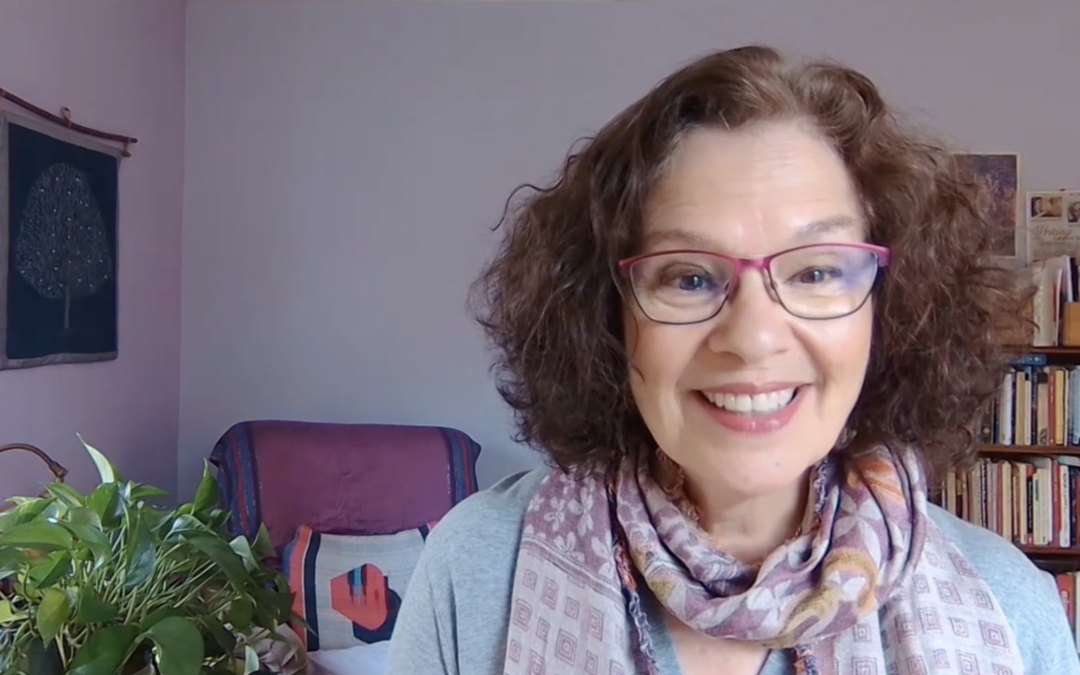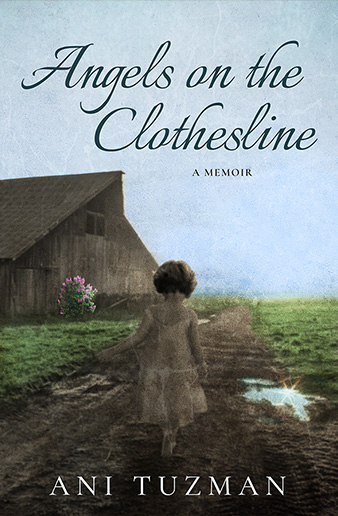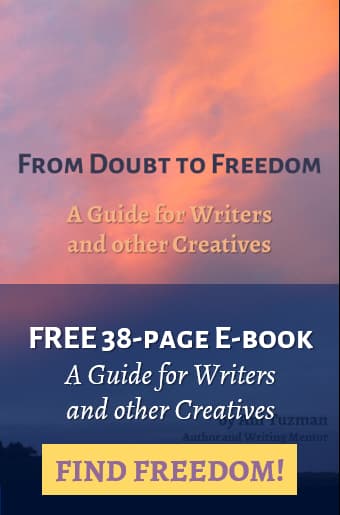Set in the 1700s in what is now western Ukraine, The Tremble of Love, A Novel of the Baal Shem Tov has been described as a meditation on the indomitable power of Love.
I am grateful for the opportunity to read to you again and in this way to meet again at the well of Love.
This is my fifth reading (and probably next to the last reading). Each stands alone. You can find links to the previous short readings below or simply go to HARVESTING LOVE to find previous posts.
Each week before selecting what to read to you, I hold The Tremble of Love close to my heart and invite guidance as to which passage to share. I actually was surprised when led to this passage, one which I have shared from time to time with friends who have recently lost spouses, parents, and other beloveds. It was after I read it aloud that I realized how apt a selection.
The passage opens after Leya, a widow, has traveled with her brother Aryeh, a widower, to seek counsel of the wise Rabbi Elijah of Brody who lost his wife some years earlier. Many of us are carrying grief right now in the face of the suffering and loss of global family members in Ukraine, Russia and in other places in the world. As we realize that our grief is rooted in love, we are better able to support and nourish each other and our world with that love.
Below the video and audio recordings, you can find the full text of the passage read in the video.
Audio only:
Text
The full passage can be found starting on page 91 of The Tremble of Love.
Leya paused, looking pensive now, as if not sure what she would say next. The rabbi watched Leya with a delicate smile. She was put at ease by this attentive, gentle confidante.
“I have felt very close to my late husband Ber, Rabbi. Perhaps too close. I feel him around me at times, comforting me with a voice that seems to come from my own heart. All this has been a great consolation. I have invited his presence eagerly.”
Leya paused again then continued softly.
“Rabbi Elijah, is it possible for me to keep Ber’s spirit, his soul, tied to the earth and in this way not allow him to move on? Is this what I am doing? When I encourage my brother Aryeh to reach to his Dvorah, to invite her spirit to soothe him, am I doing harm?”
Aryeh was taken aback. Leya had received so much solace from feeling Ber’s presence; sensing him close had strengthened her. She had confided to Aryeh that sometimes she felt Ber guiding her when she stumbled in her knowledge of shoemaking. And the rare times when Aryeh sensed Dvorah close, had he not been filled with hope, as if soothing waters had been poured on the searing fire that consumed him? Why would Leya imagine this could be wrong? How could something so filled with blessing and beneficence possibly cause harm?
Aryeh leaned forward, face down, not certain that he wanted to hear the rabbi’s answer to Leya’s question.
“Your love for your departed husband does not bind him,” Rabbi Elijah began, the compassion in his voice palpable. “Do not worry.”
“But,” he went on, “if over time your sense of Ber’s presence changes, you must allow it to change. Your love for him and his for you shall never end. But you may find as time passes that the loving presence you experience as Ber no longer feels to be that of an individual man. He will have merged completely into the Source of Love from which all human love arises.”
Aryeh lifted his head from his hands. It seemed the man was looking right through him, waiting for Aryeh to speak. Aryeh had nothing to add to what his sister had said. It had not, after all, been his idea to come for this meeting. But in the next instant, Aryeh was speaking.
“I miss my Dvorah greatly. At times, my desire to live is like a weak flame being swallowed by darkness. I call out like my sister—but I call out with anger, despair, and futility to a God I have judged cruel enough to steal the life of the innocent. I have hurled insults as if I knew better than God what should come to pass. I have no right to question the will of God so severely as if I were the only man to ever lose what was precious to me. Instead, I should…”
“You are the only man,” Rabbi Elijah interrupted.
What had the Rabbi said? That Aryeh was the only man to have lost someone he loved? What could he mean by that?
“You are the only man who can feel what it is to lose this particular woman you love so dearly. No one else can know what that pain is. This is your pain. And you must feel it as only you can feel it.”
Aryeh, not having expected any of this, fixed his attention on the rabbi.
“Dvorah does not feel pain any longer. Know this, Aryeh. Do not add to your pain by reliving hers or pitying her. She has been freed from the bondage of the body’s suffering. Her soul’s wish is that you not suffer unnecessarily. But there is such a thing as necessary pain that cannot be avoided, which is why there is a time prescribed for mourning.”
Aryeh immediately felt his familiar shame for mourning well beyond the prescribed time. As if knowing Aryeh’s unspoken feelings, Rabbi Eli- jah continued.
“This does not mean that each man and woman is to measure and count their days of mourning. We do not cease to grieve by the power of our will alone. To find peace in the face of loss is the work of grace more than individual will.”
The rabbi spoke without pedantry. The intimate, genuine manner in which he addressed them evoked Aryeh’s trust.
“My wife Dalia, peace be upon her, died when our children Gershon and Channa were very small. I could not imagine raising them without her. It was difficult just to raise myself from my bed without her. It did not matter that I was a noted rabbi by then, a competent and respected judge in the court of Brody, schooled in the laws of burial and called upon to counsel my fellow Jews when the much feared Angel of Death came for their loved ones.”
“Suddenly I was not able to speak about death with anyone. All my knowledge was like dust under my shoes. I had nothing nourishing to give as spiritual food when men and women came to me. Some days, like you, dear Leya, I called out to my Dalia, begging her for advice, for words to cross my mind and fall from my lips—words I could apply like a balm to the suffering men and women seeking my help. Sometimes when I felt my wife close to me, I would think: Yes, now she will inspire me with the words to speak. But instead, the grief would intensify, swelling in my chest with so much force that I could barely breathe. She did not bring me hope to give to others; instead she showed me the way deeper into my grief.”
Aryeh was intrigued by the rabbi’s words.
“Finally, I yielded. I stopped seeking words to give others that might still the tremble of their shoulders and hearts. I had no drink for their thirsty souls. I could only sit with them, cry with them, shake with them, call out to God for mercy, and thirst with them. I could only not under- stand with them. I stopped looking for answers. And I still do not have them today, years later.”
The rabbi fell silent, continuing to look at Leya and Aryeh with his radiant eyes. No one spoke. Aryeh felt words clamoring inside him like people in a building on fire, caught in a narrow passageway through which none could exit.
“Aryeh, there is no end to the sorrow of losing one who can never be replaced. But there is an end to the sorrow that makes one wish not to live. Sorrow and love can live together in one man’s heart. They must.”
“Are you saying, Rabbi Elijah, that I do not need to fight these torrents of grief?”
“You cannot fight them. Tell me, Aryeh, what if you simply saw your grief as love?”
“I would not feel shame,” Aryeh answered immediately. “And I would fear my grief less, and its power to harm my daughter Rifka.”
“Aryeh, when you know that your grief is rooted in love then you will feed yourself and your daughter with the power of this love. Feel the loss, but do not let it destroy you. Trust that you are being called to even greater love.”
__________________________________________________________________________
“The Tremble of Love presents a world where death, loss, tragedy, accident, and disease are never far away, but also where the human capacity to hold and heal are almost always nearer than imagined—because God, who is Love, is also astonishingly nearer than imagined.”
~Rabbi Nancy Flam, cofounder of the National Center for Jewish Healing, founding director of the Institute for Jewish Spirituality.
If you missed my previous four readings, you can find them here:
Listen to Preface and Author’s Note Read by Ani
Ani Reads Opening to Chapter One
The Power of Compassion
A Daughter’s Hunger to Learn
If you have not yet read The Tremble of Love, learn more here. You can find information about where to get hardcover, paperback, eBook or audiobook editions here
And for those who have already read The Tremble of Love, A Novel of the Baal Shem Tov, or are rereading the novel now, please consider rating and leaving a review, which can be just a few words, on Amazon (even if you got the book elsewhere) and/or Goodreads. Reviews help the book and its message of love reach more souls!
May we know and be the power of Love.
Ani
G'Mar Chatima Tova
I close with this customary greeting whose literal meaning is: "a good final sealing." I will add to that: May you know the love of which you are made. What better than to know this?
With gratitude,
Ani
Your comments make this blog a conversation!
I would love to hear from you.
To avoid spam all comments are moderated by Ani. So if you don’t see your comment show up, not to worry; your comment will be up within within 24-48 hours






Dear Ani, I found this in my emails buried in a sea of political confusion. In bold face the word Grief. I missed your emails over the years, but I saw this one and listened to the reading. I have been feeling untethered, lost, your reading gave me the guidance I was searching for. Thank you
Dear Shawn,
I am so grateful that you listened and that you have written me here (and in a private email in reply to receiving my email as part of my Inner Circle).
I am immensely grateful that this passage touched your heart and in some way seems to have blessed your deep and tender healing journey.
Keep on loving and remember: a broken-heart is a heart broken open to more love…
With so much love,
Ani
Thank you so very much for your reading. Your words seeped into my heart and like a warm ointment brought some light and solace. I lost my precious husband Joseph several months ago. I too experience his presence which both comforts me and disturbs me because I want to cling to him. For some fifty years, Joseph was my soul, my rock, my joy, husband, friend, counselor, lover, the One who brought meaning and made daily life worthwhile. Years ago I bought your book. Then, the pandemic hit and movers came in an packed and moved all our possessions; our books are now in storage…
Dear Glenda,
Thank you so very much for sharing your experience here. I am moved and grateful that this passage brought you some solace. I am so sorry that your Joseph is not sitting across a table or room with you as he once had.
Reading your words, I feel touched by how incredibly fortunate you are to have had a life companion such as you describe! Though I imagine that does not make the loss of his company easier. I wish you an ongoing, deep experience of love and joy, even with Joseph no longer in physical form.
As I type, these words rise up from Kahlil Gibran: “the deeper sorrow carves into your being, the more joy you can contain.” It sounds, Glenda, like you are one who is capable of going very deep. May you find the power of your love and life energy in that beautiful depth.
With love,
Ani
PS. If you have no luck finding your copy of The Tremble of Love and wish to read it or to reread it, let me know. We will figure out a way for me to give you a copy. (You can just reply to the email I sent you announcing this reading, since I can see you are in my inner circle.)
Wishing blessings upon your tender open heart,
Ani
Thank you Ani- what a lovely way to introduce your novel. It must be wonderful to read your own beautiful words.
Dear Lisa,
Thank you for taking the time to listen and receive this offering. I hope you will find time to enjoy the others. The Power of Compassion, (two readings back) is particularly relevant to these times as our hearts break and open in loving witness.
And yes, quite amazing to read to you and others in my “inner circle.” An honor really. This might sound odd, but it didn’t feel like my idea—especially the videos. A better way to say that is that the idea to share this way came from a deep inner place and was a surprise.
As soon as I apprehended the guidance, it felt so right. The Tremble of Love not only carries messages of love and the Baal Shem Tov’a transmission of loving compassion, to enter the book is to enter one’s own heart. I felt that when I wrote it and now when I read it to you.
Much love to you, dear Lisa!
Ani